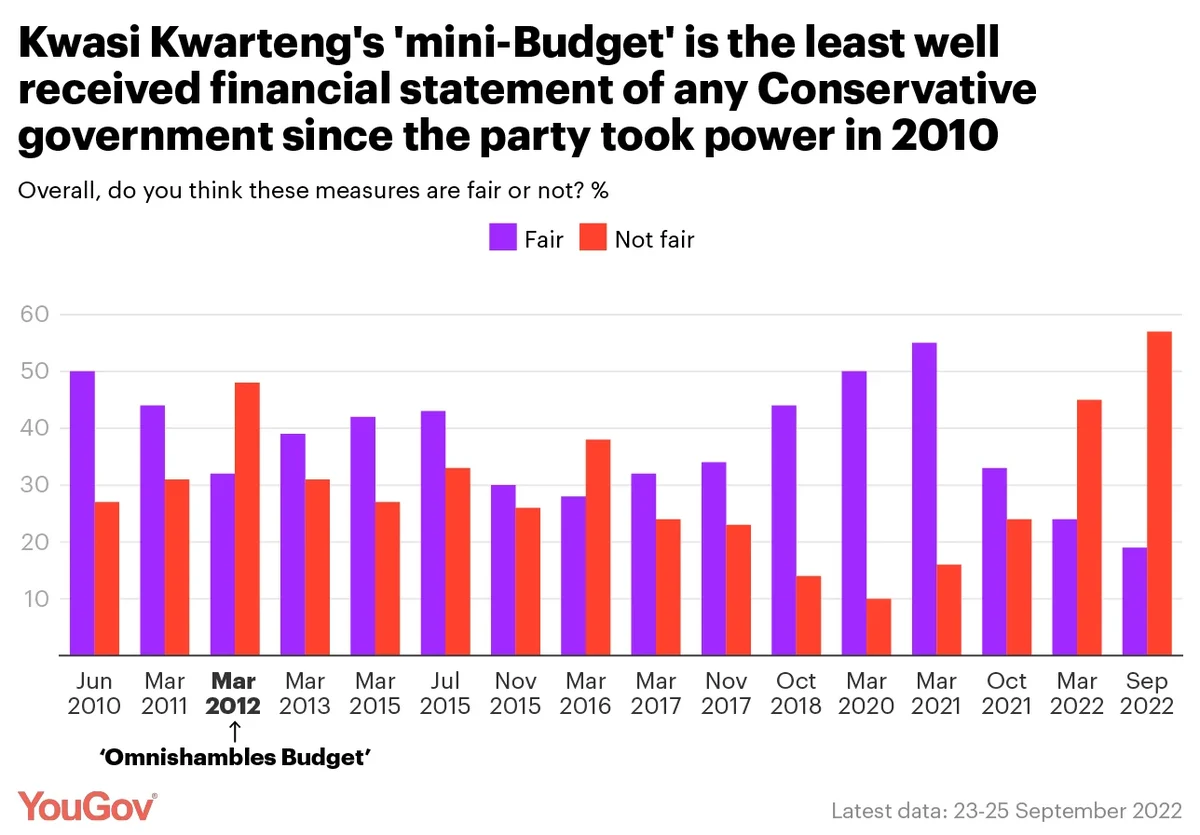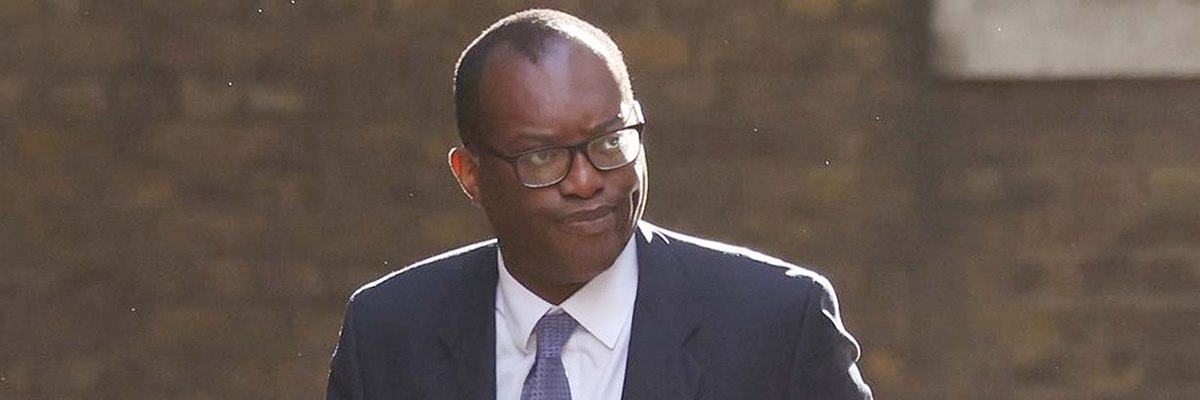Most Britons say the overall package of measures announced by Kwasi Kwarteng is unfair
A new YouGov political survey reveals that, while Britons approve of some measures in Kwasi Kwarteng’s ‘mini-Budget’ last week, the overall package has gone down poorly.
What do Britons make of the mini-Budget?
Most Britons are happy with the cut to the basic rate of income tax (60%) and the reversing of the recent National Insurance increase (59%). Half likewise approve of the changes to Stamp Duty bands (52%).
However, the large majority think that abolishing the top rate of tax (72%) was the wrong priority at the present time, with a similar number saying the same of removing the cap on bankers’ bonuses (71%).
Most Britons say the mini-Budget measures collectively are unfair (57%), the worst score for any financial statement since the Conservatives took power in 2010. By comparison, the ‘Omnishambles Budget’ of 2012 only received an unfair score of 48%.
Just 19% think the package of measures the government has put forward is fair.

Half of Britons say that the mini-Budget will leave the country worse off (50%) and 37% say that it will leave themselves and their family worse off. Just 9% say it will be an improvement for themselves personally or the country nationally.
The government has said that growth is its central economic mission, with the mini-Budget officially titled ‘the Growth Plan’.
Few Britons are convinced that the plan can live up to its name, however. Just 15% believe the package will improve the growth of the British economy, compared to 53% who say it will not.
Even Conservative voters tend to think the plan won’t boost the economy, by 37% to 28%.
Britons overwhelmingly think the economy is in dire straits, and that the worst is yet to come
Turning to the wider economy, few Britons (25%) also feel like the new government has a clear plan on how they want to run the economy. Most (54%), however, think the government lacks a clear plan. Even Tory voters are split on this, with 40% confident the government knows what it’s doing but 38% suspecting they do not.
Eight in ten Britons (80%) say the economy is in a bad shape at the moment, including 45% who say it is in “very bad” shape. Three quarters (74%) expect the economy to get worse still in the coming 12 months, with 49% saying it will get “a lot” worse.
Unsurprisingly, therefore, the large majority of people say the government is doing badly at managing the economy at the moment (69%). Just 16% of Britons think the economy is being handled well.
Among those who supported the Conservatives at the 2019 general election, 70% think the economy is in bad shape, 66% expect it to get worse, and by 48% to 33% they say the government is doing a poor job at looking after it.
When it comes to people’s own financial situation, two thirds (66%) expect things to get worse, including 32% who believe their finances are set to get “a lot” worse. Only 19% expect to remain in about the same position financially, while just 7% expect it to get better.
Although too early for many to say, Kwasi Kwarteng’s time as chancellor gets off to a poor start
Kwasi Kwarteng has only been chancellor for three weeks, so unsurprisingly most Britons have yet to assess how well he is doing in the role (54%). Nevertheless, things aren’t off to a great start, with more than three times as many people believing him to be doing a bad job (36%) than a good one (10%).
Conservative voters are even more unlikely to have made their minds up about the new chancellor, with 63% answering “don’t know” at this present time. Those with a view are divided between the 19% who think he is doing well and the 18% who think he is doing badly.
Photo: Getty









